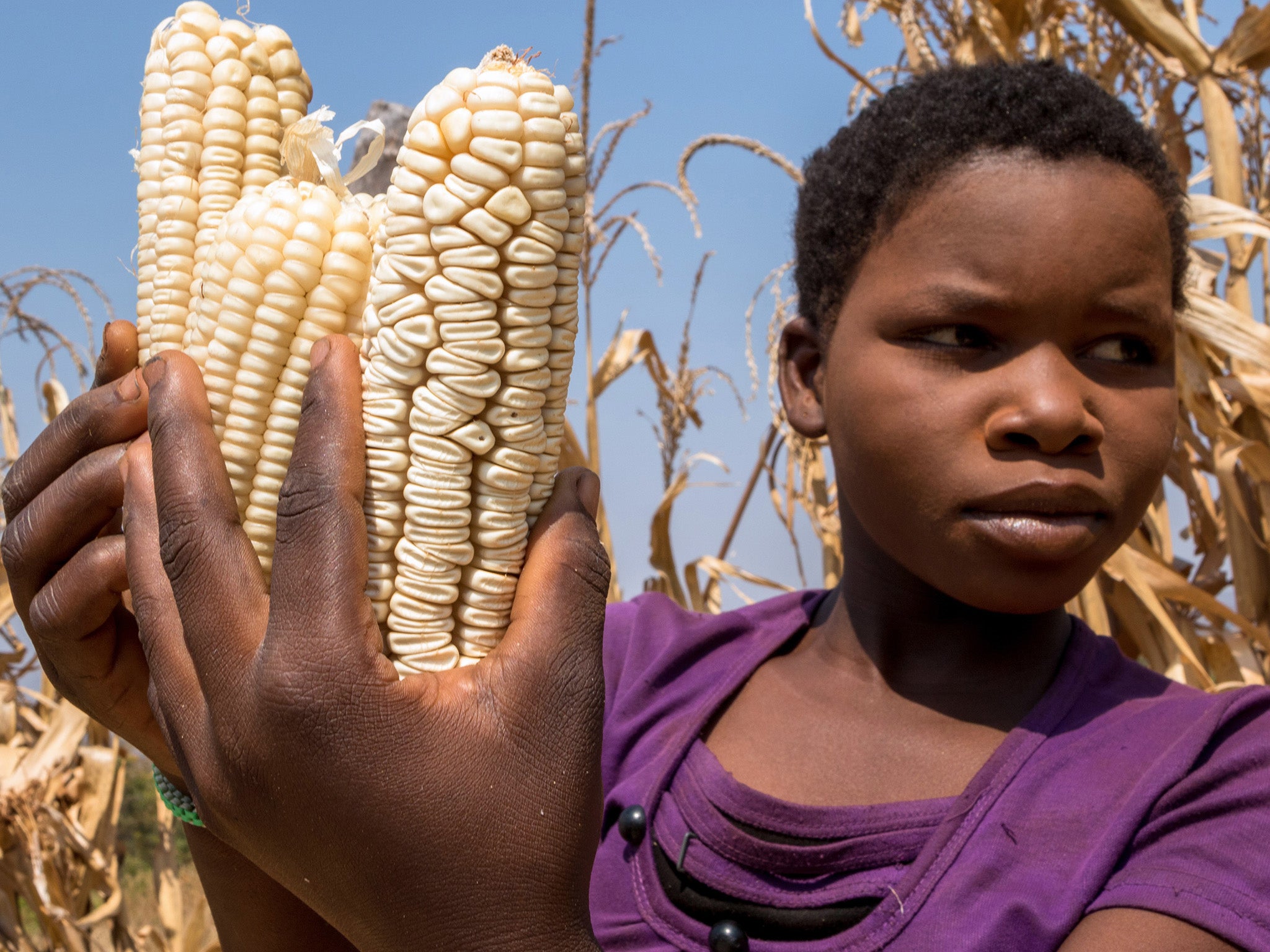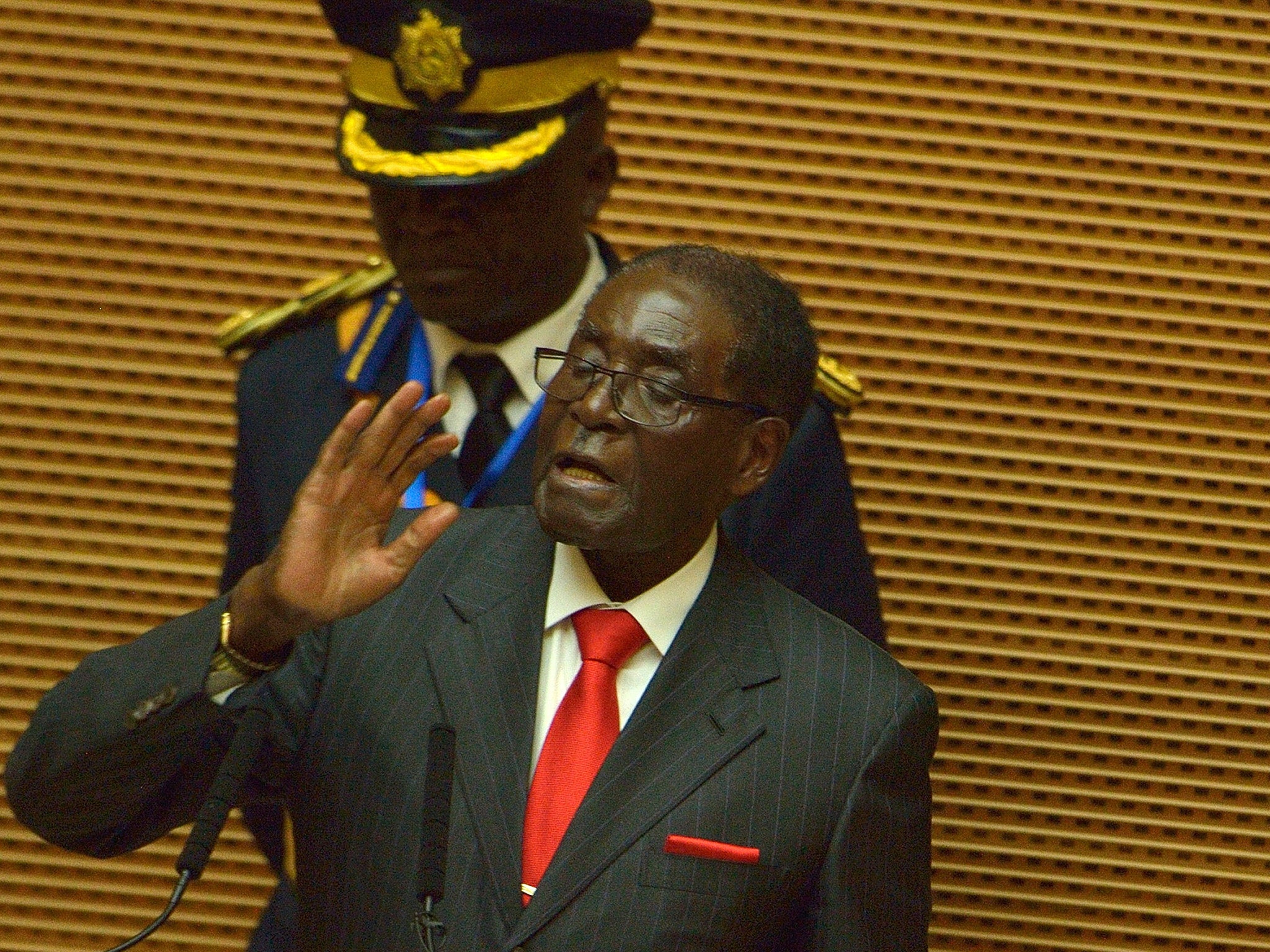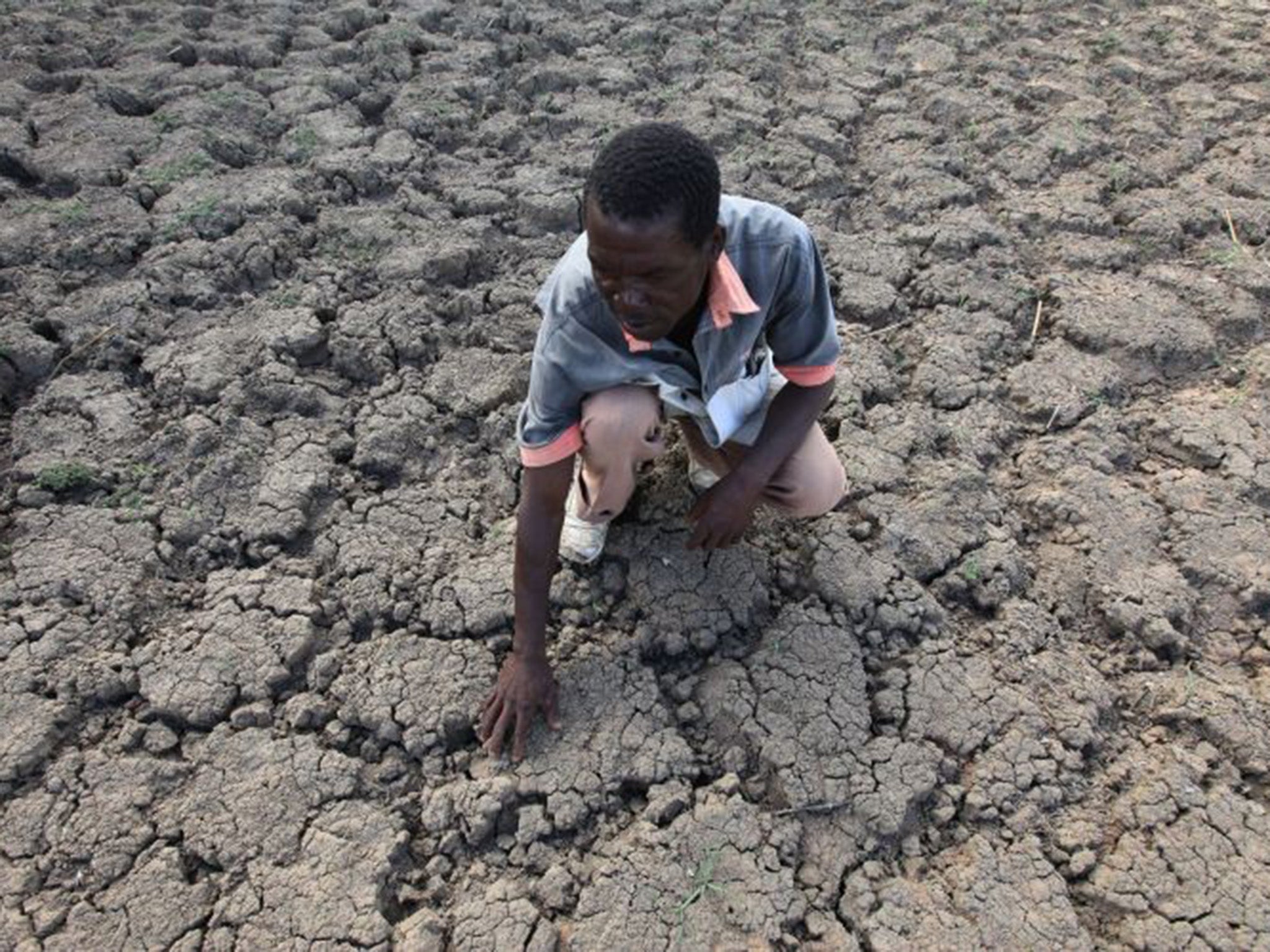Zimbabwean President Robert Mugabe declares 'state of disaster' as drought means 2.4m need food aid
Official declaration will make it easier for Western aid agencies to raise the money to buy the food the country needs to prevent starvation

Zimbabwe’s President Robert Mugabe has declared a state of disaster as the country struggles to cope with a prolonged drought.
The announcement comes as 26 per cent of the population - 2.4m people - are said to need food aid.
Declaring a state of disaster allows international aid agencies to raise money to feed the population faster - it is estimated that Zimbabwe will need to step up imports 700,000 tonnes of maize this year to prevent starvation.
The southern African country is still struggling to overcome the collapse of the economy caused by economic mismanagement, hyperinflation and sanctions by Western donors following political violence in 2002.
Saviour Kasukuwere, the local government minister, said the country had seen less than three quarters of the usual rains - with some regions seeing 75 per cent of their crop falling.
The hydroelectric dams were also in danger of falling as the water level fell.

Zimbabwe's biggest hydro power plant, Kariba, has already cut back electricity generation by 62 percent.
Mr Kasukuwere said: "Given the foregoing ... His Excellency, the President has declared a state of disaster to severely affected areas in communal and resettlement lands of Zimbabwe effective from 2 February 2016".
It comes as Philippe Van Damme, the European Union ambassador to Zimbabwe, warned last month that delays in declaring the drought a disaster could limit chances of getting international support at a time when donors are swamped with multiple humanitarian crises in other parts of the world.
The Zimbabwe Peace Project, a non-governmental group, said reports indicate food is being used as a political weapon to punish the opposition in some cases.
It cited 135 cases of "food violations" from September to December.
In Gwanda, a town southwest of Harare, the residents' association is encouraging people to buy ruling ZANU-PF party membership cards and attend party meetings to enhance chances of getting government-funded food aid.

In January, dozens of villagers from rural Mutasa district, east of Harare, reportedly stormed a government grain warehouse, demanding an end to the politicization of food aid.
Mr Mugabe has been in power for several decades but his government keeps hold of power allegedly using periodic bursts of human rights abuses and voter fraud.
The drought is believed to be caused by the El Nino weather pattern which has also brought drought to neighbouring South Africa - the region’s largest maize grower.
Additional reporting by agencies
Join our commenting forum
Join thought-provoking conversations, follow other Independent readers and see their replies
Comments
Bookmark popover
Removed from bookmarks